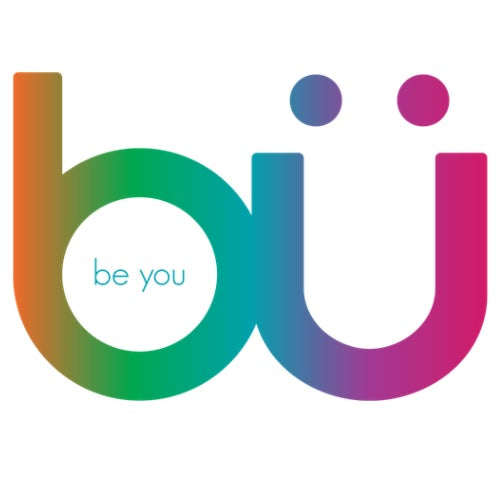Reef-Safe Sunscreen: The Truth Behind the Marketing Claims
You’ve probably heard the question: "Is sunscreen killing the reefs?" Whenever sunscreen comes up in conversation, it’s often followed by concerns about whether it is truly "reef-safe." The short answer? No, there is no sunscreen that is 100% reef-safe. Here’s what you need to know about the impact of sunscreens on coral reefs and the misleading marketing surrounding "reef-friendly" products.
The Rise of "Reef-Safe" Sunscreen Claims
As more people seek to enjoy the outdoors post-Covid, sun protection is essential. At events where we demonstrate our bü sunscreen, the initial reactions are often "Wow!" because of how it feels like nothing on the skin. But soon after, the inevitable question arises: "Is it reef-safe?"
The simple answer is NO. Despite marketing claims, no sunscreens are truly reef-safe. In fact, there is no regulatory body that defines or certifies what "reef-safe" actually means. Many sunscreens use ingredients like zinc oxide and titanium dioxide, which are marketed as "reef-friendly" or biodegradable. But these claims are misleading.
The Problem with Zinc Oxide and Titanium Dioxide
While zinc oxide and titanium dioxide are derived from minerals, they do not biodegrade in the traditional sense. Instead, they can bio-accumulate in the reef, potentially causing harm. Applying sunscreen to coral reefs is like coating the coral in a layer that blocks the UV rays it needs to thrive.
-
Zinc Oxide: According to the National Library of Medicine, crude zinc oxide is a yellow-gray granular solid that poses an environmental threat due to its insolubility in water. Learn more about zinc toxicity to zebrafish from OSU's study.
-
Titanium Dioxide: Often found in sunscreens, titanium dioxide acts as a UV filter but has been shown to have potentially toxic effects on fish and aquatic organisms. Read more on its impact here.
These substances do not naturally occur in their sunscreen form. Processing zinc oxide and titanium dioxide into fine powders involves chemical processes, making them less "natural" than you might think.
Why Are Zinc Oxide and Titanium Dioxide Considered "Reef Safe"?
The truth is, they became the default options due to a lack of comprehensive testing and regulation. Current laws, like Hawaii's Act 104, ban sunscreens containing oxybenzone and octinoxate due to their potential to cause coral bleaching. However, other UV filters, including zinc oxide, are also under scrutiny for their effects on marine life.
*The Smithsonian reported that while banning certain ingredients may help, it doesn’t mean that alternatives are completely harmless. Read the full article here.
Smithsonian on "All Sunscreens are harmful to the reefs":
"But just how conclusive the evidence on sunscreen’s impact on coral reefs—and whether consumers should switch to “reef-friendly” sunscreens—remains disputed. According to marine ecology researcher Cinzia Corinaldesi, who has studied the impact of sunscreens on coral reefs since 2003, the problem is that “unfortunately, oxybenzone is not the only harmful ingredient of sunscreens.” Other UV filters, including zinc oxide, are proving to have an impact on coral bleaching—and the ban does nothing to prevent these."
The Bigger Threat: Global Warming and Pollution
It’s essential to understand that global warming and pollution are the primary drivers of coral bleaching events worldwide. While sunscreens do contribute, the major culprits are rising ocean temperatures, plastic pollution, and coastal development. Studies have shown that 14% of the world's coral reefs were lost over a decade due to climate change. Learn more in the Washington Post's coverage.
What Can You Do to Help Protect Coral Reefs?
- Use UV Apparel: If you’re visiting reefs, consider wearing UV protective clothing instead of relying solely on sunscreen. This minimizes the amount of chemicals released into the water.
- Stay Out of Reefs Whenever Possible: Touching or swimming near corals can damage them. If you truly care about reef conservation, limit your exposure and enjoy these natural wonders from a safe distance.
- Choose Sunscreen Wisely: While no sunscreen is entirely reef-safe, opt for products that are broad-spectrum, water-resistant, and biodegradable whenever possible.
- Support Reef Conservation Efforts: Advocate for policies that address the root causes of coral decline, such as climate action and anti-pollution initiatives.
BU Sunscreen: Doing Our Part for the Planet
At BU Sunscreen, we are committed to making sun protection that not only feels great on the skin but also considers the environment. Here’s how we’re making a difference:
- Sustainable Manufacturing: Our products are made using solar-powered processes and packaged in recyclable bottles.
- Broad-Spectrum Protection: BU Sunscreen offers broad-spectrum coverage, meaning you’re protected from both UVA and UVB rays.
- Innovative Formulas: Our sprays are easy to apply, non-greasy, and not cold to the touch, ensuring that sun protection becomes a pleasant part of your daily routine.
We believe in providing honest information and empowering you to make informed decisions about sun safety. Ultimately, reef-safe labeling is more about marketing than science. The best way to protect coral reefs is by tackling the larger issues of global pollution and climate change.
For Further Reading and Information
- Center for Biological Diversity - Coral Conservation: Coral Threats Overview
- New York Times - Great Barrier Reef Bleaching: The Impact of Hotter Waters
- Jean Michael Cousteau - Diver Magazine on Sunscreen and Coral Reefs: Read More
Always Be Informed, Always Be You
Remember, the best sun protection is the one you’ll actually use consistently. BU Sunscreen is here to help you stay protected while making conscious choices that benefit both you and the environment. Whether you’re hiking in the mountains or diving into the ocean, make sure to take the necessary precautions and always be informed.
For more insights on sun protection, sustainability, and UV safety, visit our blog (https://www.busunscreen.com/blogs/news/reef-friendly-class-action-suits-reef-safe-really) and join the conversation on how we can all make a difference.












